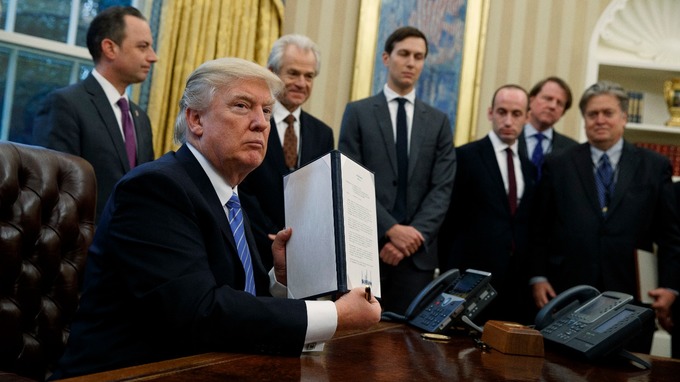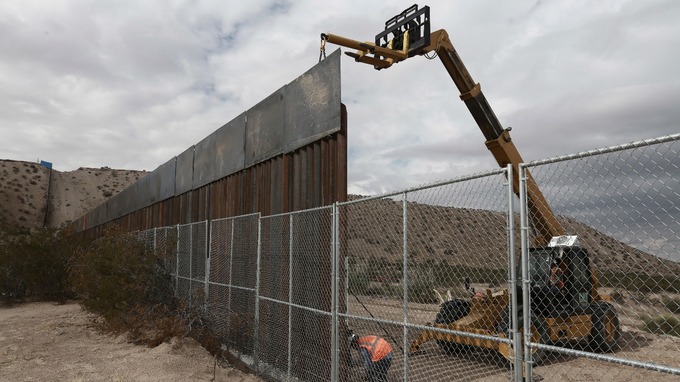Donald Trump’s orders on the Mexican wall, and refugees

Donald Trump is expected to sign at least two executive orders on Wednesday, concerning immigration and, as he put it, "national security".
One is an executive order to build the proposed wall between the US and Mexico, and the other is expected to be a temporary ban on refugees, along with a block on visas for individuals from specific countries.
One of Trump's key campaign promises was a wall between Mexico and America, which he believes would help stop people from illegally entering into the US, and which would be paid for by Mexico.
The wall would actually be an extension of an already-existing hard border, which consists of a series of fences along just 580 miles of the border, which is 1,954 miles in total.
In between those sections of fence is what's termed the "virtual fence", which is monitored by border agents using sensors and cameras.
It is unclear how much of it will remain a fence and how much will be a wall, but there is a dispute as to how much of the border can be closed thanks to a treaty between the two countries, which limits where and how structures are built along the border.
The International Boundary and Water Commission, which is a joint US-Mexican agency, says the treaty requires that structures don't disrupt rivers, which define the border along Texas and for around 24 miles in Arizona.
Trump's statements about the wall have enraged politicians in Mexico who have repeatedly contradicted his reports of their conversations.
When Donald Trump suggested that Mexican President Enrique Pena Nieto agreed Mexico would pay for the wall, Nieto said in September that during a conversation with Donald Trump, he "made it clear that Mexico will not pay for the wall."
Critics also say that the wall is unfeasible and will not work.
Richard Stana, who wrote reports on border security for the nonpartisan Government Accountability Office, said: "It's extremely challenging to put a brick-and-mortar wall along the Southwest border for any number of reasons. It seems very simplistic."
Thad Bingel, a former senior US Customs and Border Protection official, questioned whether a wall would even be desirable, given its costs.
Bingel, who was involved in border fence-building during the Bush administration, told the Washington Post: "Every wall can be circumvented. People can go under it, they can go over it.
"No one should go into this with the idea that if you just build the right kind of wall, no one will get through."
Trump is expected to issue an order that bans refugees from entering the US, except for religious minorities escaping persecution, until the administration agrees non more aggressive vetting.
Additionally, another order is expected to block visas being issued to anyone from Iran, Libya, Somalia, Syria, Iraq, Sudan, and Yemen.
While Trump has the legal authority to block applications from refugees, it is a policy move that may backfire since it would mean the US is abandoning its commitment to humanitarian causes.
The order would also leave over a thousand refugees in limbo, as it threatens a deal made with Australia late last year. The US agreed to resettle a number of refugees being held in Papua New Guina and Nauru on behalf of Australia.
Some critics believe that Trump's vision of "extreme vetting" for people from specific countries amounts to religious discrimination, and has been called "shameful" by leading legal organisations.
Trump has faced opposition to his proposal from within the Republican party, with Paul Ryan saying last year: "I do not think a Muslim ban is in our country's interest."
Immigration expert Hiroshi Motomura said that religious discrimination is against the Constitution, noting: "[Trump’s] comments during the campaign and a number of people on his team focused very much on religion as the target."
Marielena Hincapié, executive director of the National Immigration Law Center, said: "To think that Trump's first 100 days are going to be marked by this very shameful shutting of our doors to everybody who is seeking refuge in this country is very concerning.
"Everything points to this being simply a backdoor Muslim ban."
Политика конфиденциальности | Правила пользования сайтом











